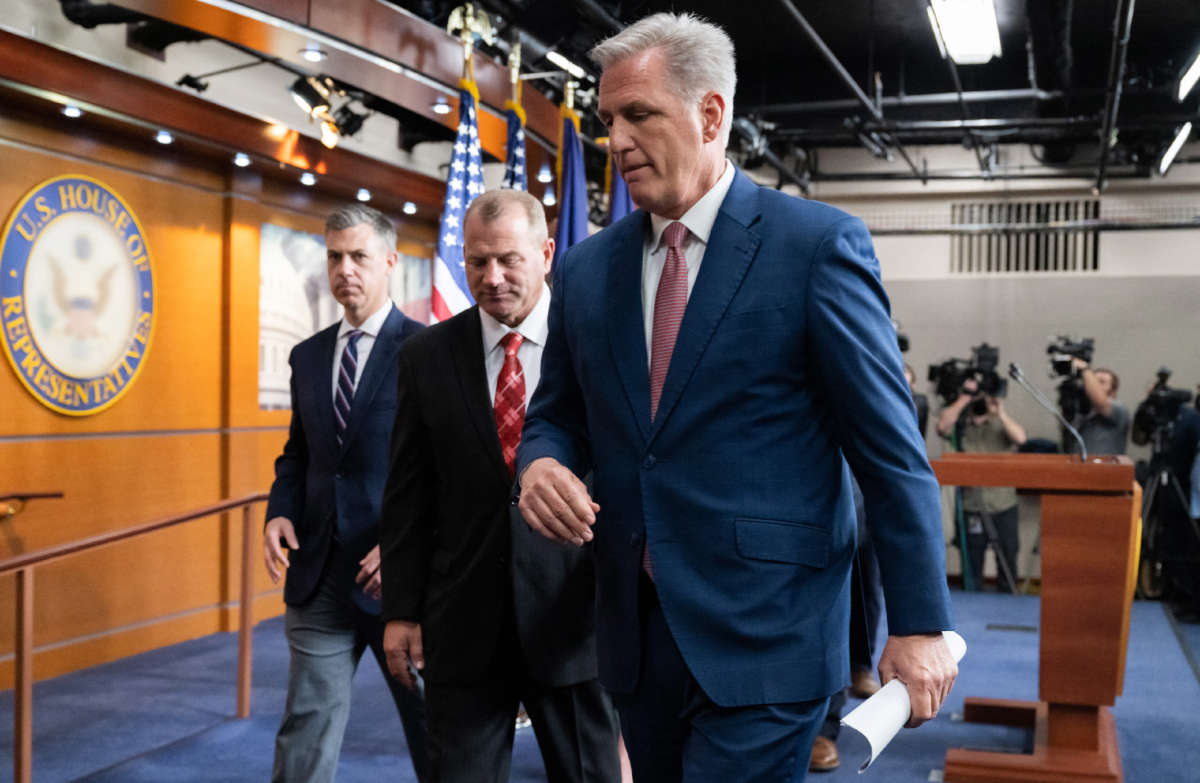If Republicans win control of Congress in this year’s midterm races, it’s not a matter of if they’ll pursue a national ban on abortion, but rather, how far such a ban would go.
Currently, there are no federal laws restricting people from seeking abortions. When the Supreme Court ruled last month to overturn abortion rights protections established in Roe v. Wade, however, several state laws restricting abortion that were on the books from before that ruling was made went into effect, as well as “trigger laws” that could only be enforced if Roe was overturned.
Now, GOP lawmakers are discussing ways to implement a federal ban should they control both houses of Congress next year. Several proposals are up in the air, ranging from bans based on the number of weeks a person is pregnant to bans that outlaw abortion at any stage.
Rep. Chris Smith (R-New Jersey), for example, has previously introduced legislation in 2015 and 2017 that would ban the procedure at 20 weeks. He has now changed that proposal to a 15-week ban, a move that House Minority Leader Kevin McCarthy (R-California), the presumed next Speaker of the House should Republicans win this fall, said that he would support.
Another proposal wants to go much further. Rep. Alex Mooney (R-West Virginia) is sponsoring “The Life at Conception Act,” which is cosponsored by 163 other GOP members of Congress. The bill would effectively ban all “abortions” from the moment an egg is fertilized — a definition that is inconsistent with what medical experts say is when a pregnancy even begins. At just half a page in length, the bill does not make any explicit exceptions for rape, incest or the health of the pregnant person.
Some Republicans have said that they oppose bans at the national level. Rep. Kevin Hern (R-Oklahoma), for example, believes that his party should be consistent with what they’ve previously pushed for, maintaining that the matter should be decided “at the state level.”
But Hern appears to be in the minority within his party, as stalwarts of the GOP have indicated that they, too, would be open to a national ban.
Immediately after the Supreme Court upended abortion rights in its recent ruling, former Vice President Mike Pence, who is eyeing a potential presidential run for 2024, expressed hope for a ban “in every state of the land.” And in May, after a leaked document suggested that the Court was set to overturn Roe, Senate Minority Leader Mitch McConnell (R-Kentucky) said that he, too, could envision a future in which Republicans would push for a federal ban.
“If the leaked opinion became the final opinion, legislative bodies — not only at the state level but at the federal level — certainly could legislate in that area,” McConnell said.
Any bans proposed during the next congressional term would face difficult odds of passing. The Senate filibuster would still be in place, and it’s likely that President Joe Biden would veto any proposal, even if it was able to pass in both houses of Congress.
But many observers have suggested that Republicans could still implement abortion bans by ending the filibuster if they win Congress, in spite of the party’s repeated defenses of the rule. And if Republicans win the presidency in 2024, there will be no procedure in place to stop a national anti-abortion law from being passed.
Join us in defending the truth before it’s too late
The future of independent journalism is uncertain, and the consequences of losing it are too grave to ignore. To ensure Truthout remains safe, strong, and free, we need to raise $33,000 in the next 2 days. Every dollar raised goes directly toward the costs of producing news you can trust.
Please give what you can — because by supporting us with a tax-deductible donation, you’re not just preserving a source of news, you’re helping to safeguard what’s left of our democracy.
